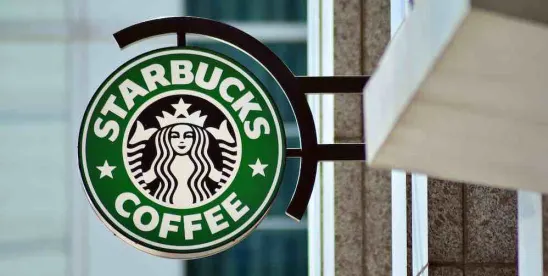On December 27, 2024, the United States Court of Appeals for the Third Circuit (“the Third Circuit” or “the court”) vacated a portion of an NLRB (“the Board”) order requiring Starbucks to compensate two allegedly wrongfully terminated employees for “all direct or foreseeable pecuniary harms” resulting from Starbucks’ alleged unfair labor practices (“ULPs”). The Third Circuit held that such a remedy exceeded the Board’s authority under the NLRA.
Background and the Thryv Remedy
In August 2020, the Board issued a consolidated complaint against Starbucks for alleged violations of § 8(a)(1) and § 8(a)(3) of the NLRA, stemming from Starbucks’ alleged wrongful termination of two employees and other labor law violations it allegedly committed in response to the employees’ union organizing activities. In June 2021, an ALJ concluded that Starbucks’ actions violated the NLRA, and the ALJ ordered Starbucks to offer reinstatement to the two terminated employees, to make them whole for any loss of earnings or benefits, to compensate them for search-for-work and interim employment expenses, and to make whole the employee whose hours were reduced.
Starbucks filed exceptions to the ALJ’s decision to a three-member panel of the Board who affirmed the ALJ’s conclusions and further ordered Starbucks to compensate the two employees for any “direct or foreseeable pecuniary harms” caused by the ULPs, citing the Board’s 2022 decision in Thryv, Inc. In Thryv, the Board determined that in cases involving remedies of make-whole relief, the respondent must also compensate affected employees for “all direct or foreseeable pecuniary harms” resulting from the ULP.
The Third Circuit’s Analysis of the Board’s Remedial Authority
Starbucks argued that the Board’s remedy imposed against it was inconsistent the NLRA’s language. The court analyzed § 10(c) of the NLRA which authorizes the Board to require employers to “cease and desist” from ULPs and to take “such affirmative action, including reinstatement of employees with or without back pay.” Starbucks argued that this section only authorizes equitable remedies—remedies that compel action or inaction—while the Thryv remedy cited by the Board permits legal relief in the form of damages.
The court explained that Congress, by allowing the Board to compel entities to “cease and desist” and to take “affirmative action,” granted it authority to order equitable, but not legal, relief. The NLRA also permits the Board to award monetary relief in the form of back pay, based on what employers withheld due to ULPs, which the court characterized as an equitable remedy since it is a form of restitution.
The court disagreed with Thryv’s holding that ordered respondents to compensate affected employees for all direct or foreseeable pecuniary harms resulting from ULPs. The court held that the Board’s order in the instant case that sought to compensate the two employees for their direct or foreseeable pecuniary harms too closely resembled the maligned Thryv remedy, and therefore the Board had exceeded its authority under the NLRA. The court vacated that portion of the order and remanded it for further proceedings, holding that monetary relief to affected employees cannot exceed what the employer unlawfully withheld.
Starbucks’ Argument Regarding the Constitutionality of ALJ Removal Protections
Starbucks also argued that the Board’s ALJs were unconstitutionally protected from presidential supervision. Starbucks’ argument focused on the for-cause removal protections enjoyed by ALJs, Board members, and Merit Systems Protection Board (“MSPB”) members, and the layered insulation from presidential review that the protections created. The court explained that the Board members are appointed by the President and can only be removed for neglect of duty or malfeasance in office. The Board appoints its ALJs who are only removable for cause, determined by the MSPB, and MSPB members can only be removed for cause by the President. Starbucks argued that under Article II of the Constitution, Officers of the United States cannot exercise executive power while insulated from presidential control by at least two layers of removal protections.
However, the court held that it lacked jurisdiction to consider the claim because Starbucks had not raised it before the Board, despite Starbucks’ argument that “extraordinary circumstances” were present, which would allow a court to review issues not raised before the Board. Starbucks relied on a Third Circuit case that held that extraordinary circumstances may exist in cases involving appointment of an officer because such issues implicate the Board’s authority to act. However, the court characterized Starbucks’ challenge to removal protections as distinct from a challenge to appointment of an officer, and therefore, the court explained that it did not call into question the Board’s or ALJs’ authority to act.
Takeaways
The Third Circuit’s decision dialed back the Board’s holding in Thryv that all cases involving a make-whole remedy would necessarily include compensation for the affected employee’s direct or foreseeable pecuniary harms suffered because of the ULP. The court explained that the NLRA limits the Board’s remedial authority to equitable relief, such as cease and desist orders to entities engaging in ULPs and reinstatement orders that may include back pay. The Board’s remedial authority does not extend to imposition of consequential damage orders.
The Third Circuit is the only U.S. Court of Appeals to recognize such a limit, so Board decisions that order compensation for direct or foreseeable pecuniary harms will still be enforceable in all states and territories outside of Pennsylvania, New Jersey, Delaware, and the U.S. Virgin Islands.
Because the Board did not consider the argument that ALJs’ removal protections were unconstitutional based on their multi-layer insulation from presidential review, the Third Circuit lacked jurisdiction to decide this claim. Entities should be mindful to raise their defenses and objections before the Board by providing it with adequate notice. Since the Third Circuit did not address the merits of the ALJ unconstitutionality claim, entities should be aware that such a defense and objection is not a guaranteed elixir for ULP charges.




 />i
/>i

